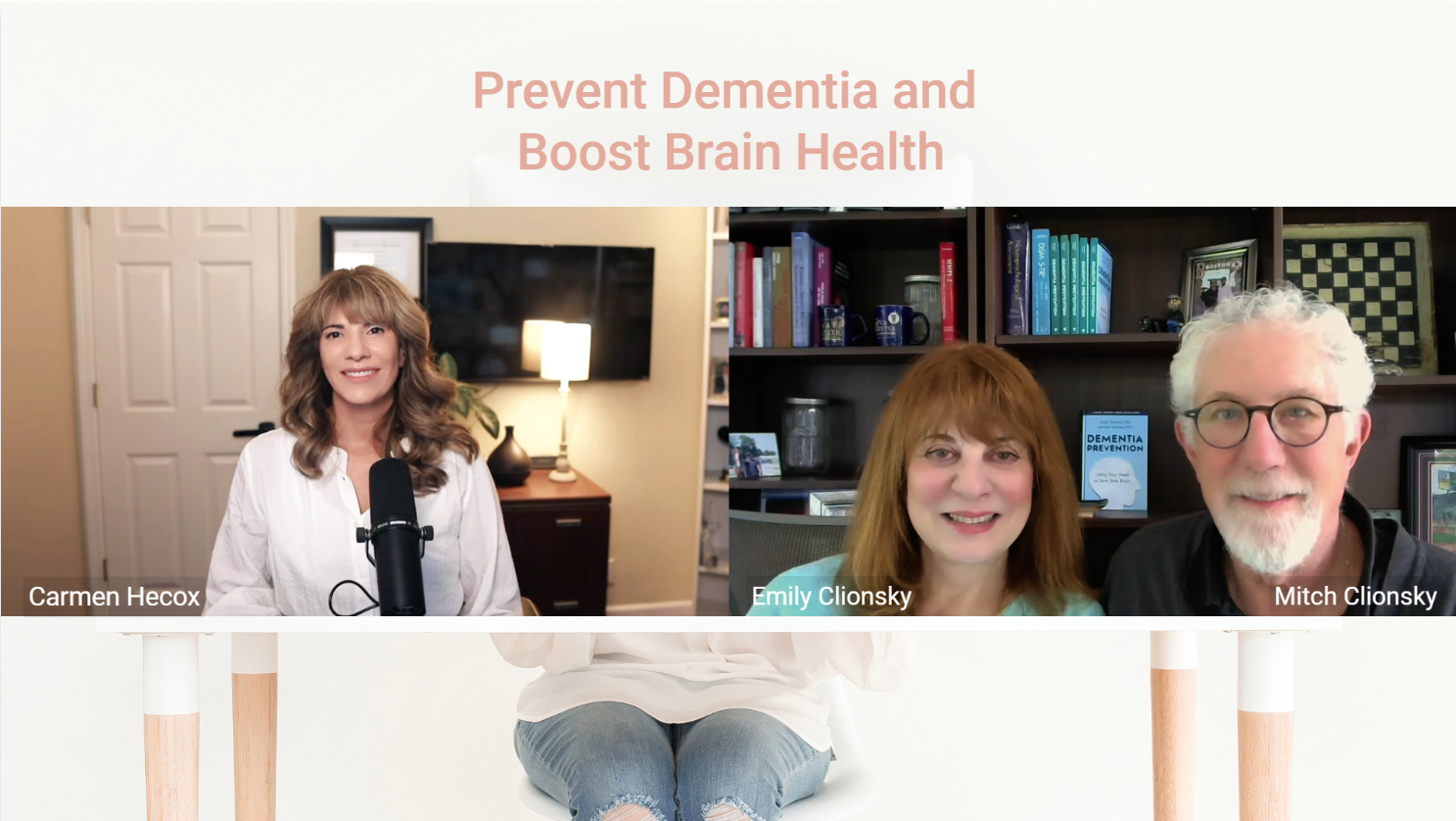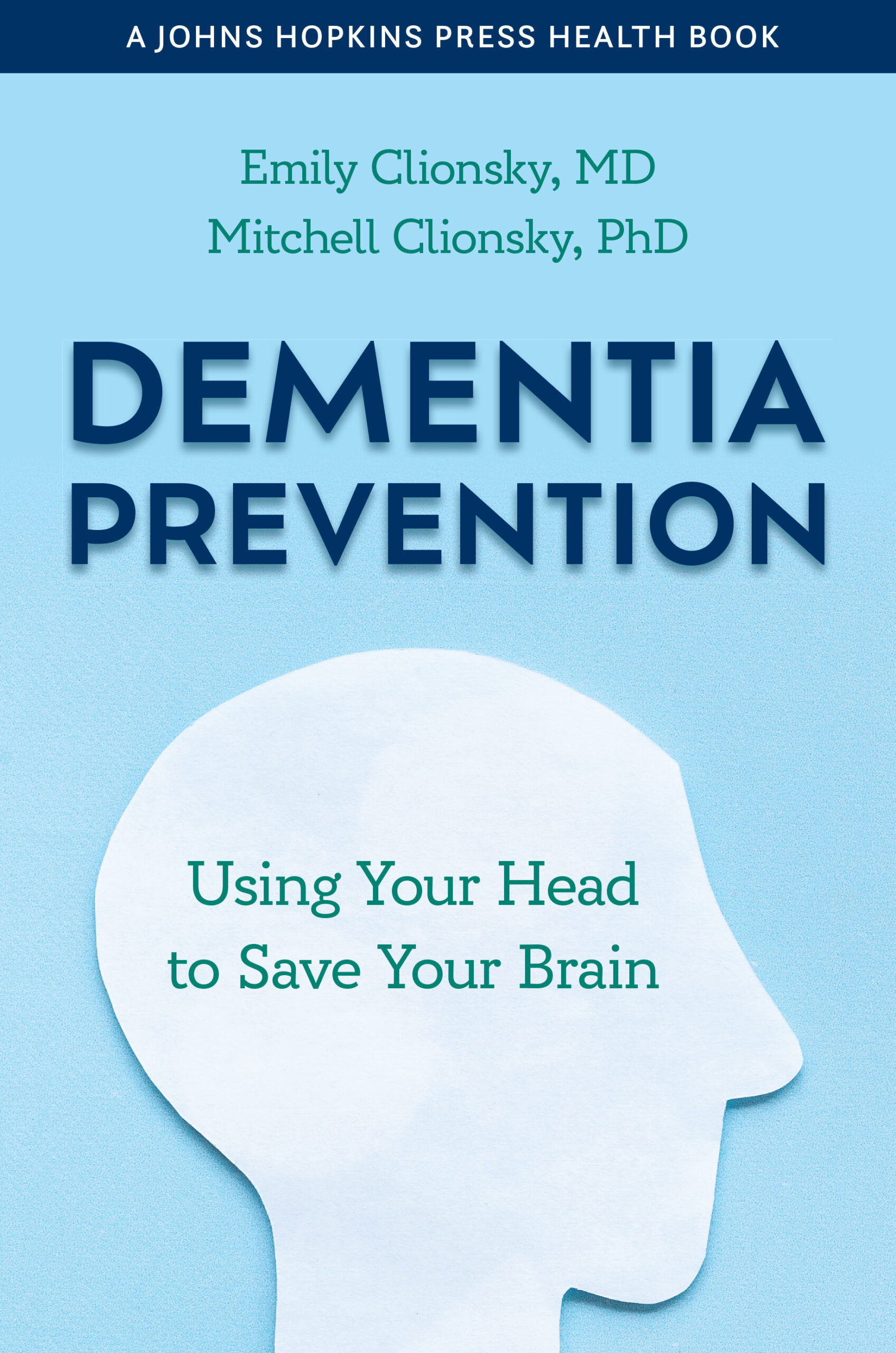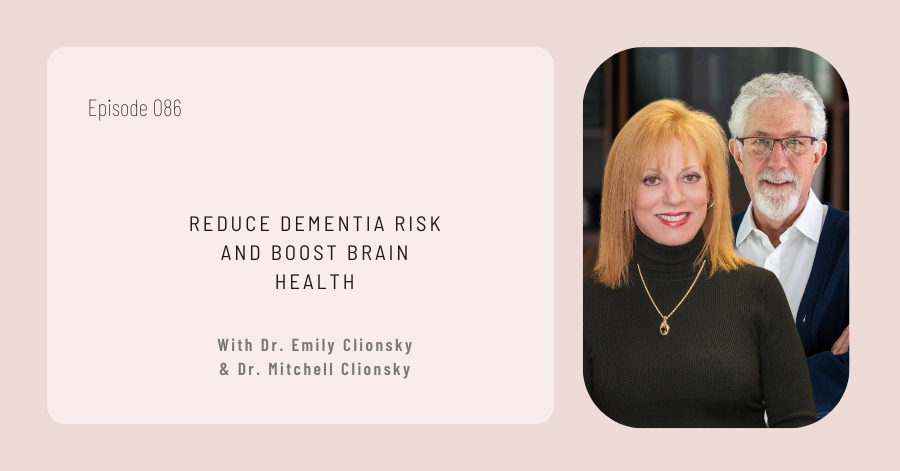Reduce Dementia Risk and Boost Brain Health: Insights for Midlife Women
Simple Changes to Prevent Cognitive Decline and Enhance Your Brain Health
Aging is a gift that often comes with risks, particularly for our brains. As women, we’re familiar with brain fog, that sense of forgetfulness and confusion that seems to accompany midlife, but it might not be something we just have to accept. With simple changes, many of the cognitive issues we face as we age can be prevented or improved, especially when it comes to how to reduce dementia risk.
I had the pleasure of talking to Dr. Emily Clionsky and Dr. Mitchell Clionsky, authors of a groundbreaking book “Dementia Prevention: Using Your Head to Save Your Brain.” These two experts have dedicated their careers to helping people improve their brain health. They shared fascinating insights into how dementia can be prevented, ways to reduce our risks, and how the brain works as we age. If you’re feeling the effects of aging, this post will give you practical tips to protect your brain and improve your overall well-being.

Understanding Dementia: It's More Than Just Aging
The thought of developing dementia is frightening, but what if I told you that half of all dementia cases can be prevented? That’s right—50% of dementia risk factors are within our control. Dr. Mitchell Clionsky emphasizes that dementia is not an inevitable part of aging. Instead, it’s often the result of several factors that we can address early on.
From head injuries to poor sleep, alcohol consumption, and even lack of physical activity, and additional known causes of dementia. What’s important is recognizing these factors and making changes before it's too late. As women enter midlife, we start to face additional risks related to hormonal changes, which are directly tied to brain function. The Clionskys break it down, showing that simple lifestyle changes can have a profound impact on brain health.

The Surprising Connection Between Menopause and Brain Health
Brain fog is something many women experience during perimenopause and menopause, but there’s a deeper reason behind it. As our estrogen levels begin to drop, our brains are affected in ways we may not expect. Dr. Emily Clionsky explains how the loss of estrogen affects not only our physical bodies but also our brains. Estrogen plays a crucial role in the health of our brain cells, helping them form new connections and maintain cognitive function. Without it, our brains start to lose their resilience.
One of the most striking things I learned during this interview is that perimenopause now starts as early as 42, not 52, as previously thought. With this earlier onset, it’s more important than ever to be proactive about brain health before memory issues start to creep in. The key takeaway here is that maintaining good brain health as we age requires us to take charge during those critical years of hormonal change.

Sleep Apnea: The Silent Threat to Your Brain
If there’s one thing that might be silently stealing your brain power, it’s sleep apnea. Many people, especially women, don’t realize they have this condition, and it can have serious consequences for cognitive health. Dr. Emily Clionsky shed light on how obstructive sleep apnea—where the airway collapses during sleep, cutting off oxygen to the brain—can cause significant damage over time. What’s even more surprising is that this condition often goes undiagnosed in women because doctors don’t always associate it with female patients.
As we age, and especially during menopause, the muscles in our airways lose their strength due to a decrease in estrogen. This makes us more prone to developing sleep apnea, even if we don’t fit the stereotypical profile of someone with the condition. You don’t have to be overweight or have a large neck to have sleep apnea. In fact, thin, fit women can still suffer from it. Treating sleep apnea not only improves your energy levels and mood but can also significantly delay the onset of dementia.

The Impact of Exercise on Brain Health
Let’s face it—most of us know that exercise is good for our bodies, but it’s also one of the best things we can do for our brains. The Clionskys highlight the importance of regular physical activity, not just for physical well-being, but for mental clarity and cognitive health. Exercise, they say, is as effective as medication in combating depression and improving brain function.
For those of us who find it hard to make time for a full workout, Dr. Mitchell Clionsky suggests a simple approach: take three 10-minute walks a day. This easy, manageable routine can make a big difference in your overall health, and it’s something anyone can start right now. Walking regularly helps keep blood flowing to the brain, reduces inflammation, and even helps clean out the waste products that build up in the brain over time.
Join our community
Connect with like-minded individuals.

Nutrition and Cognitive Decline: What You Eat Matters
The Clionskys also touch on the vital role nutrition plays in preventing cognitive decline. One of the most effective ways to lower your dementia risk is by adopting a healthy diet rich in brain-boosting nutrients. Eating more vegetables, lean proteins, and healthy fats—especially omega-3s found in fish—can provide the brain with the building blocks it needs to stay sharp.
The Clionskys point out that much of the dietary advice we see in the media isn’t backed by solid science. Fad diets and quick-fix solutions often get headlines, but they rarely provide lasting results. Instead, focus on making sustainable changes to your diet that will benefit both your body and your mind in the long term. Avoiding processed foods and sugary snacks can go a long way in protecting your brain.

Social Connections: A Key to Longevity and Brain Health
Another surprising factor that affects brain health is our level of social engagement. As we age, maintaining strong relationships and staying connected to others becomes increasingly important. Isolation can be a significant contributor to cognitive decline, so it's essential to nurture meaningful relationships and engage in social activities. Whether it's joining a book club, catching up with friends, or volunteering, staying socially active is a powerful way to protect your brain.
The Clionskys encourage everyone to focus on building and maintaining these connections as part of a comprehensive plan to prevent dementia. It’s not just about what you do physically or what you eat—it’s also about who you surround yourself with and how you engage with the world around you.

Taking Control of Your Brain Health
The message from Dr. Emily and Dr. Mitchell Clionsky is clear: we have the power to significantly reduce our risk of dementia and cognitive decline. By addressing lifestyle factors such as sleep, exercise, nutrition, and social engagement, we can make a meaningful impact on our long-term brain health.
“Dementia Prevention: Using Your Head to Save Your Brain” is an essential guide for anyone looking to take proactive steps toward protecting their cognitive function. It’s not just for people in their 60s and 70s; it’s for anyone who wants to age well and live life to the fullest. If you’re ready to start making changes that will benefit your brain for years to come, take their advice to heart and begin implementing these strategies today.
Take Action to Reduce Dementia Risk
If you're ready to start your journey toward better brain health, visit the BrainDoc to access their dementia prevention checklist and learn more about the simple steps you can take to reduce your risk.
You’ll also find additional insights on living your best midlife delivered straight to your inbox. Your future self will thank you for the effort you put in today!
Watch the complete interview here.

Resources Mentioned:
Dementia Prevention: Using Your Head to Save Your Brain
Subscribe to Apple Podcasts, and don't forget to Rate and Review
Like what you heard? If so, please rate and comment on Apple Podcasts. And while you are there, let me know what you want to hear next.
And while you are there, don't forget to hit Subscribe.


